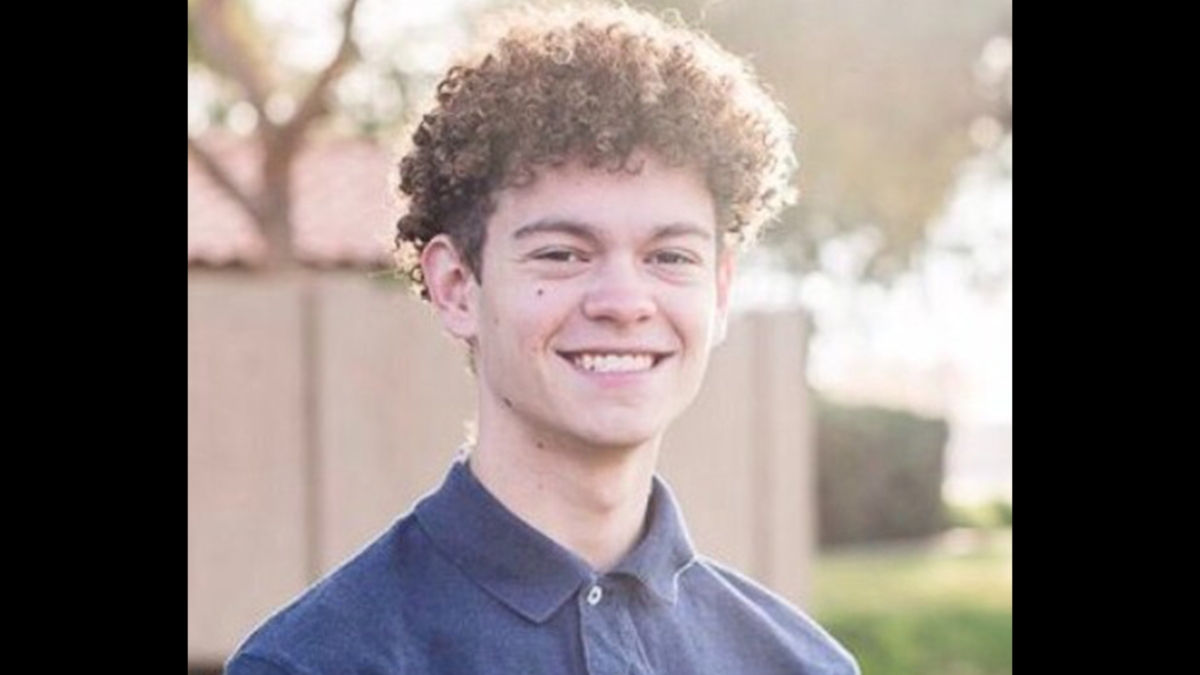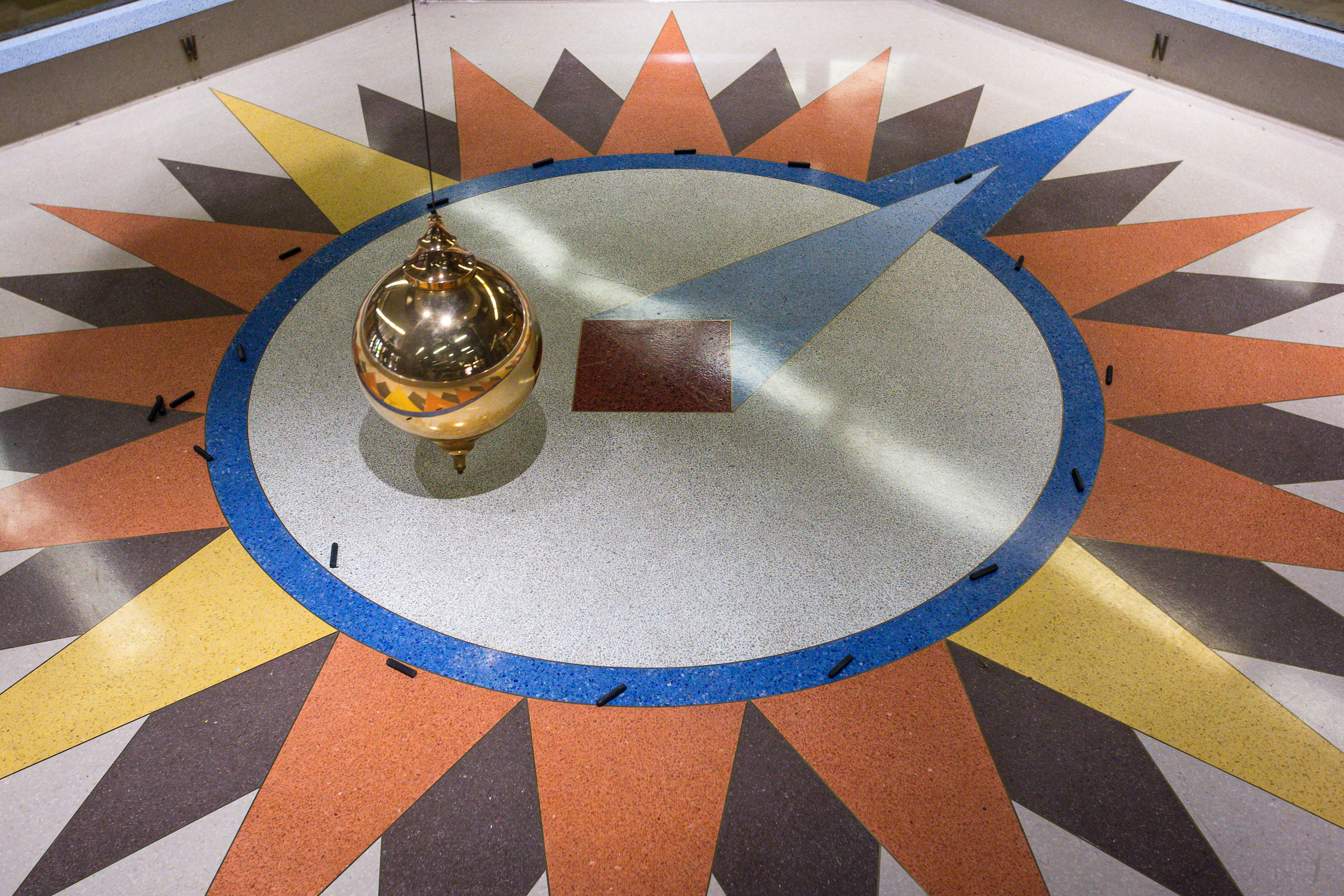Lifelong Sun Devil, graduate emphasizes personal growth

Jackson Carrion is graduating this spring with a master’s degree in biomedical informatics at the College of Health Solutions. After graduating, he will pursue a PhD in computational and systems biology at MIT. He looks forward to developing and applying new artificial intelligence tools in order to better explore drug discovery.
Editor’s note: This story is part of a series of profiles of notable spring 2023 graduates.
At 14 years old, Jackson Carrion attended his first Arizona State University football game with his grandpa, who was a season ticket holder. Since then, he has been a Sun Devil for life.
“I quickly realized that colleges like ASU are more like a community instead of a school. Seeing the students come together, forget about the struggles of class and work, and just have a good time was really exciting and made ASU my No. 1 choice,” said Carrion, who is graduating this spring with a master’s degree in biomedical informatics at the College of Health Solutions.
Throughout his time at ASU, Carrion has learned the importance of being OK with failure, especially in research. Carrion has conducted extensive research for the Biodesign Center for Applied Structural Discovery, learning along the way that not every experiment will result in a successful outcome. His advice for those still in school is to embrace failure as a learning opportunity.
“Everyone makes mistakes, but being able to identify where the mistake was made and correct it in the future is a crucial step in growing as a researcher,” he said.
After graduation, Carrion will be attending MIT to pursue a PhD in computational and systems biology. He looks forward to developing and applying new artificial intelligence tools in order to better explore drug discovery.
Question: What was your “aha” moment when you realized you wanted to study the field you majored in?
Answer: My biggest "aha" moment was definitely the development of AlphaFold2. AlphaFold2 is a piece of software that can use AI in order to construct protein structures with very high accuracy. With my experience in structural biology, it can take years to solve just one protein structure, but AlphaFold2 can solve every protein in the human body in just a few months. AI and machine learning have the ability to accelerate science exponentially, and this has a huge impact on many fields, like drug discovery, immunology, enzymology and much more. Combining AI with biology can allow researchers to solve some of the most complex diseases and disorders for only a fraction of the price and time.
Q: What’s something you learned while at ASU — in the classroom or otherwise — that surprised you or changed your perspective?
A: I learned that collaborating on projects and making connections is the key to becoming a successful researcher. ASU is full of students with such diverse backgrounds. Being able to talk to people from fields that I didn’t know existed allowed me to grow and learn much more than I ever thought was possible. I firmly believe in the saying, “If you are the smartest person in the room, then you are in the wrong room.” Networking with people and experts from various fields can help us learn more about research as well as ourselves.
Q: Which professor taught you the most important lesson while at ASU?
A: Jay-How Yang was by far my most influential professor. We have worked countless hours in the lab together, and the best advice he has given me was to not be one-dimensional. In the classroom and in textbooks there is usually one correct answer, but in the lab and in the real world there are many ways to solve a problem. Learning to be multidimensional and solve problems in a variety of ways has helped me become a better researcher and student in general.
Q: What was your favorite spot on campus, whether for studying, meeting friends or just thinking about life?
A: My favorite place on campus is the Bateman Physical Sciences building, where the pendulum swings. I have spent countless hours in the Physical Sciences building conducting research, and whenever I have a slight break, I love to come down to the first floor and just watch the pendulum swing. When I was in middle school, we took a tour of ASU, and the pendulum was the main thing that I remembered after leaving the field trip. It is very nostalgic and makes me feel like a young Jackson would be proud of where I am today.
The Foucault Pendulum, in the F-Wing of the Bateman Physical Sciences building, demonstrates the rotation of the Earth. As the pendulum ball swings back and forth, the plane of its swing appears to slowly rotate in a clockwise direction. Actually, the path of the pendulum is fixed in space, and it is the Earth — and the pendulum pit — that slowly turns beneath the ball. Photo by Charlie Leight/ASU News
Q: If someone gave you $40 million to solve one problem on our planet, what would you tackle?
A: I would definitely focus on solving a cure for Alzheimer’s. When I first entered ASU, I was very interested in how such a disease could affect a person so dramatically, especially since losing my memories and knowledge is one of my greatest fears. Within these past four years, the advancements in Alzheimer’s research has grown exponentially. From what seemed to be an impossible task, developing not only an understanding but a cure is now a great possibility within the next 10 to 20 years. With multi-omics bioinformatics and structural biology, learning the system and etiologyThe cause, set of causes, or manner of causation of a disease or condition. of this disease is more feasible than ever.
More Science and technology

Lucy's lasting legacy: Donald Johanson reflects on the discovery of a lifetime
Fifty years ago, in the dusty hills of Hadar, Ethiopia, a young paleoanthropologist, Donald Johanson, discovered what would…

ASU and Deca Technologies selected to lead $100M SHIELD USA project to strengthen U.S. semiconductor packaging capabilities
The National Institute of Standards and Technology — part of the U.S. Department of Commerce — announced today that it plans to…

From food crops to cancer clinics: Lessons in extermination resistance
Just as crop-devouring insects evolve to resist pesticides, cancer cells can increase their lethality by developing resistance to…
